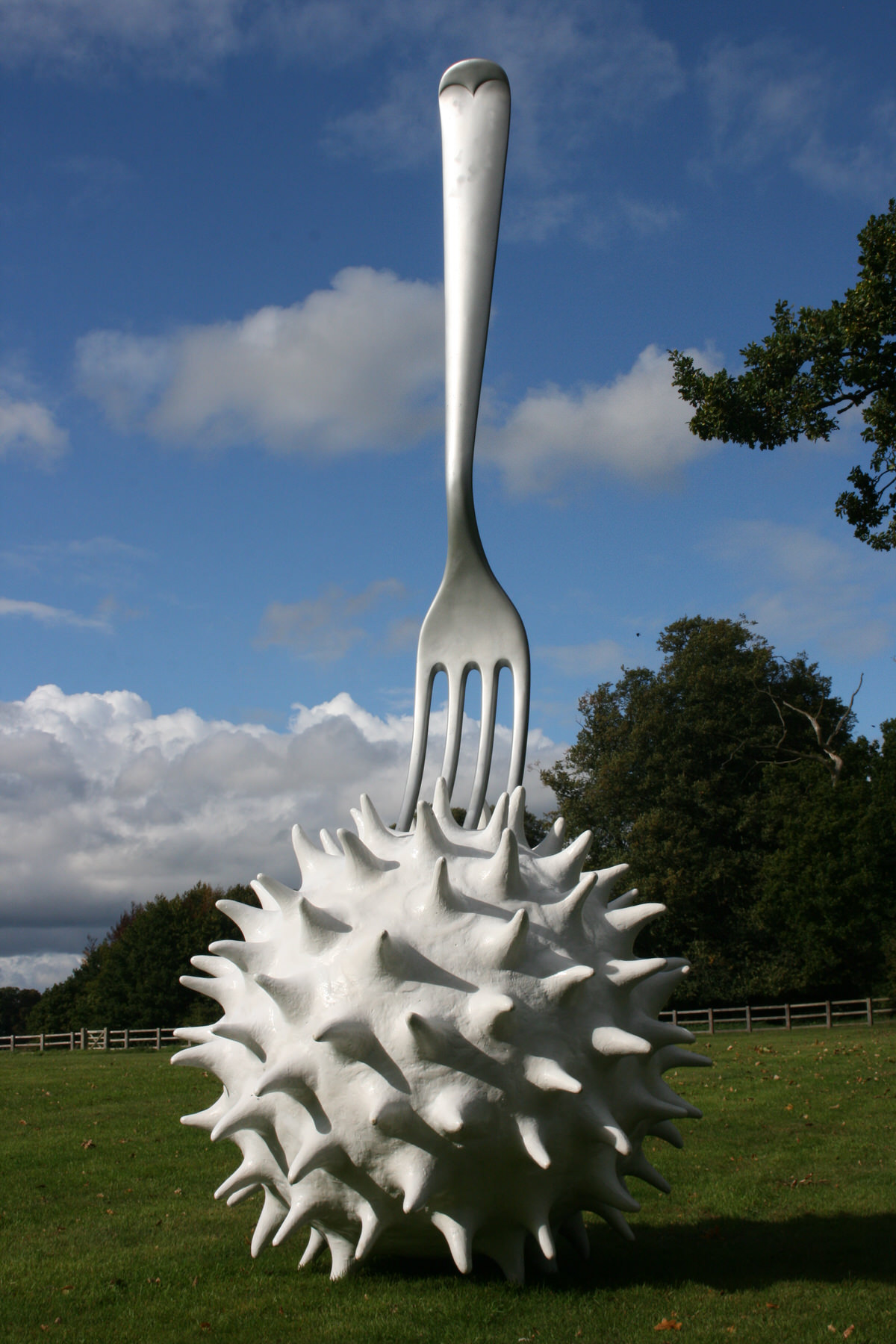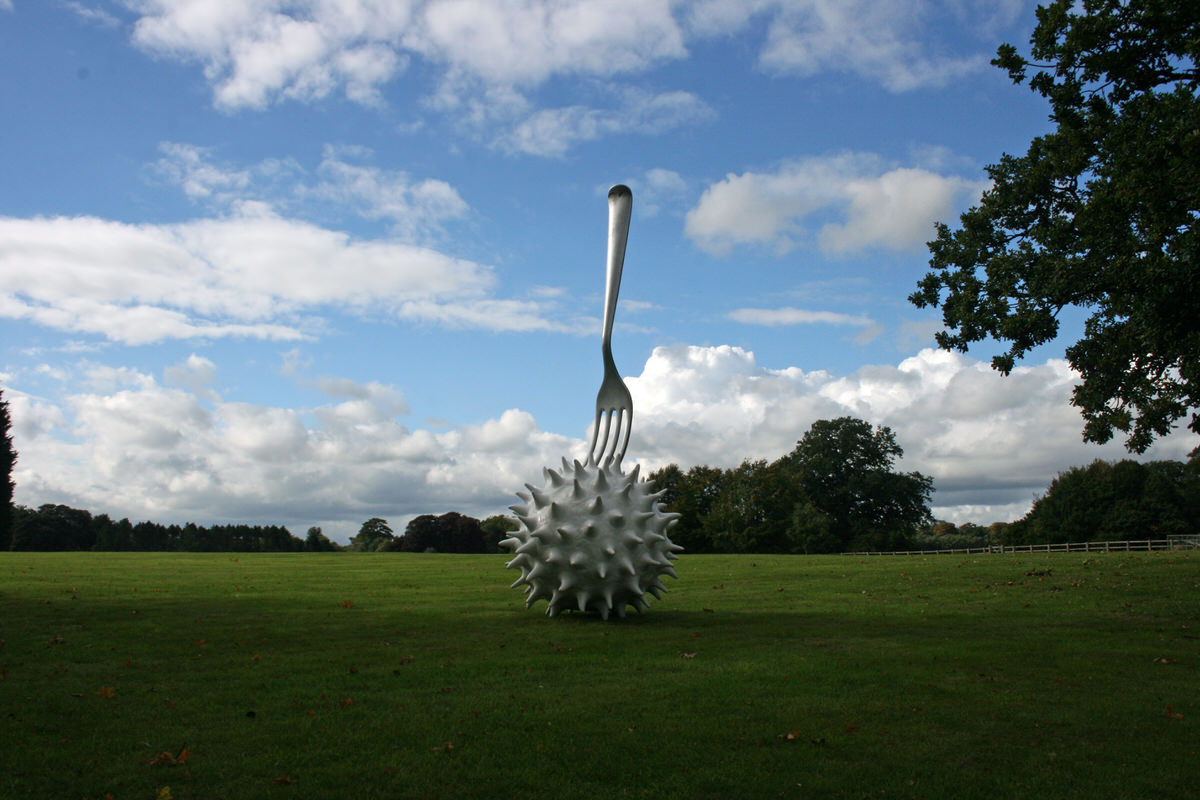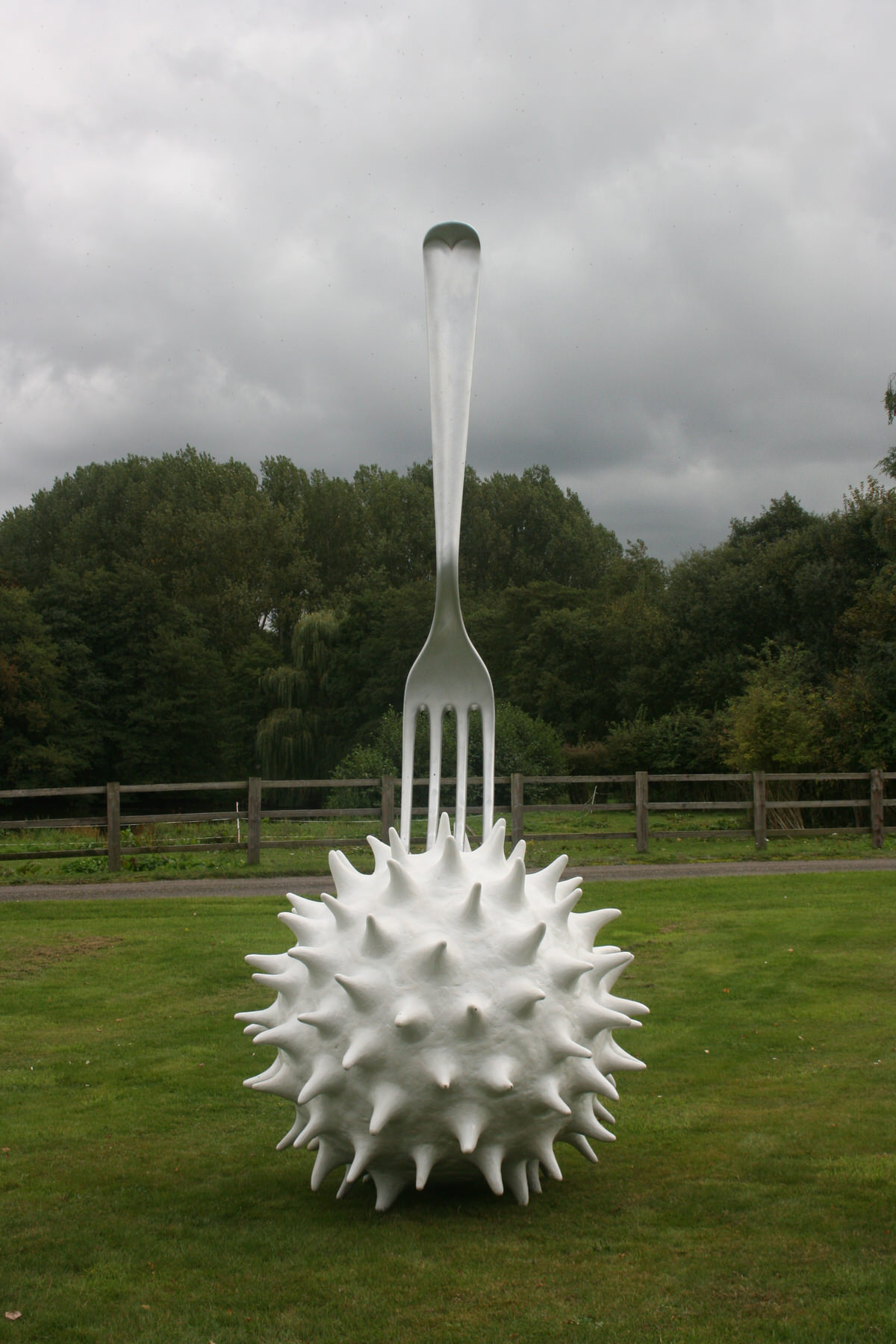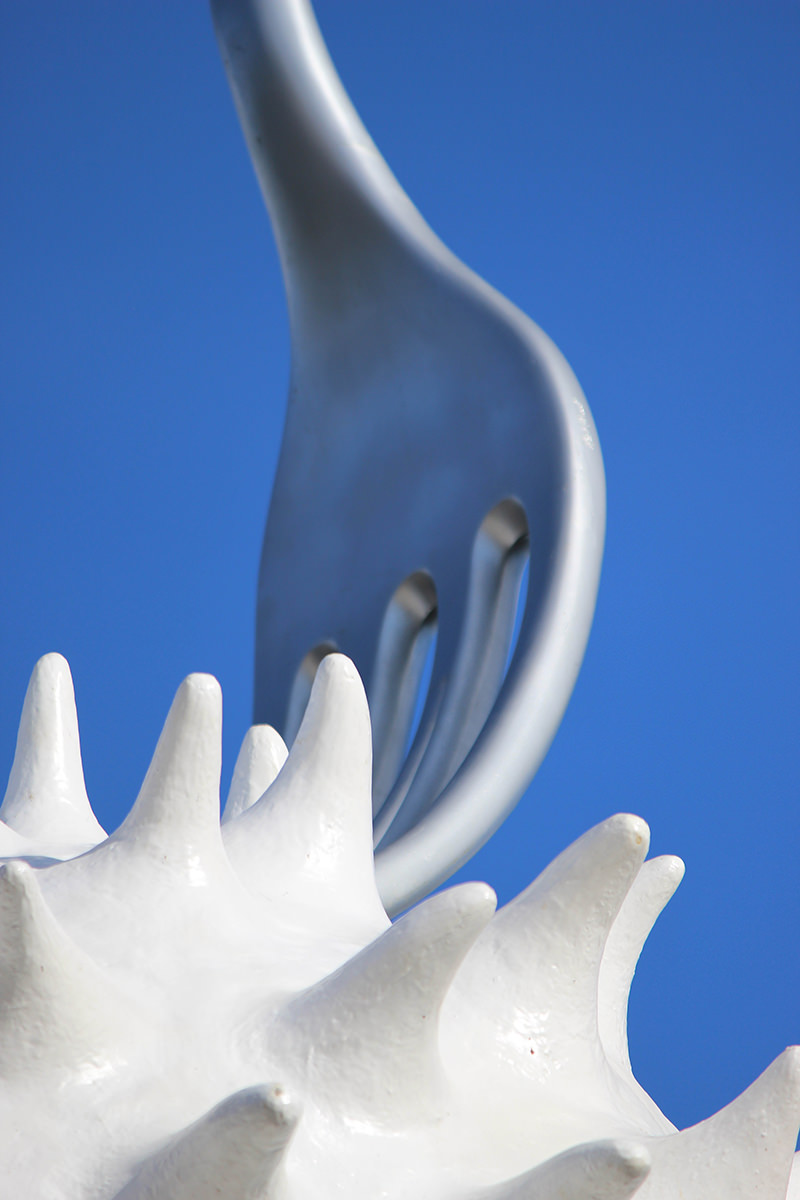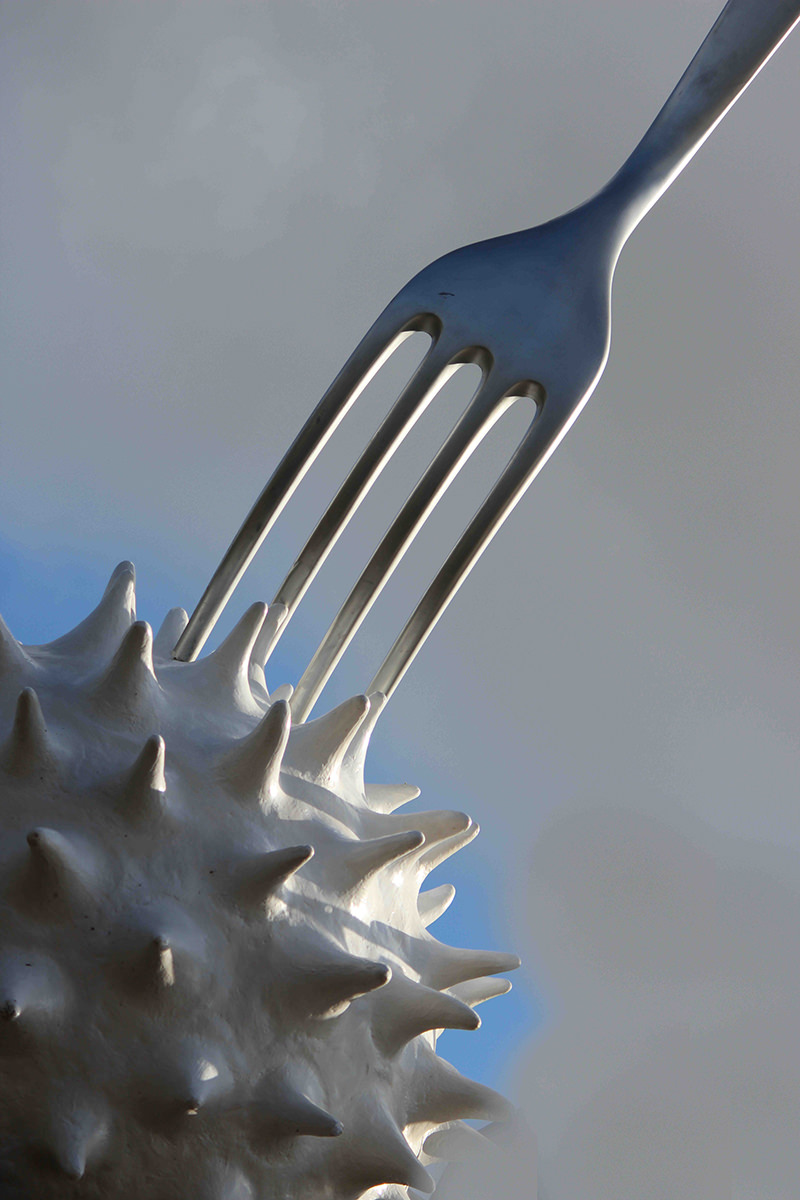Marine Grade Resin
Unique
397h x 170w x 170d cms
(13′ x 5’6″ x 5’6″)
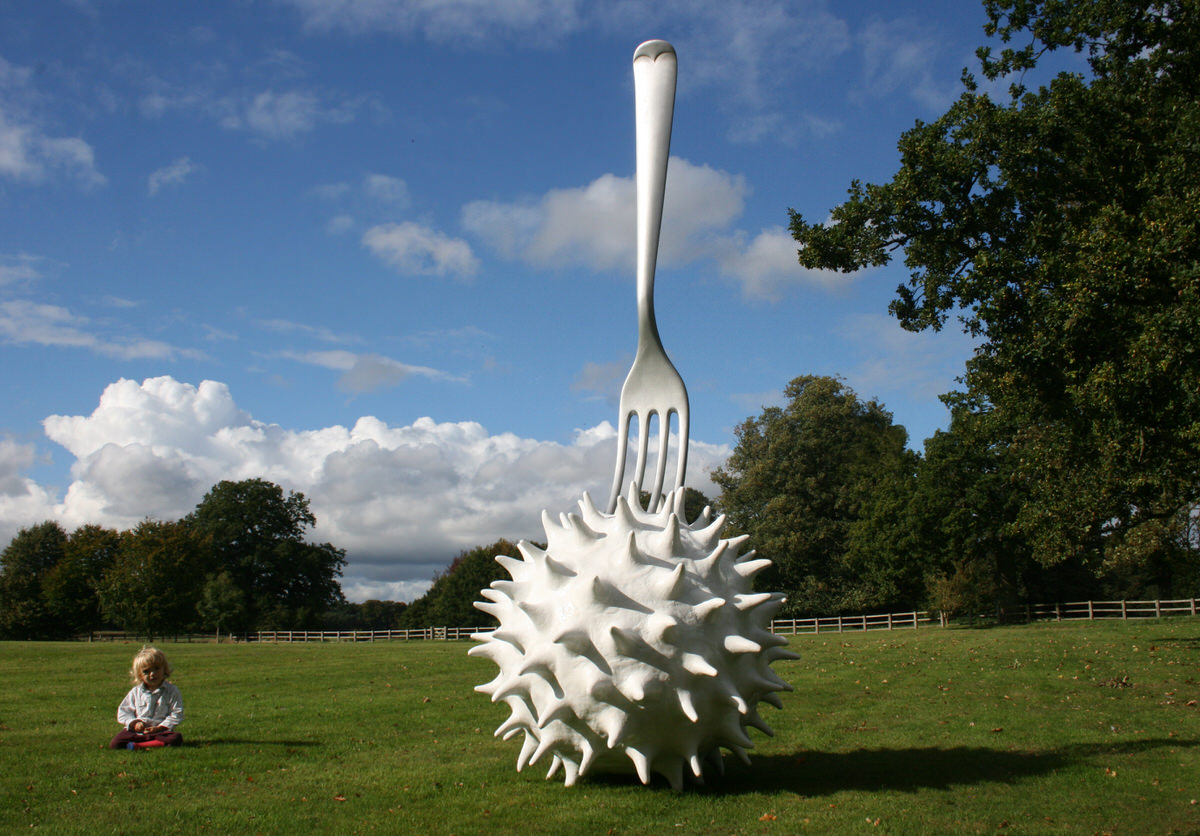
A failed crop in the family orchard where Mark’s studio is located inspired Mark to make his monumental ‘Fork in Pollen’ Sculpture he is concerned with the plight of the bees-and the widespread effect that it would have globally if decline continues in such numbers. Climate change and environmental damage is a monumental problem which Mark could not ignore.
Bees are great pollinators, and therefore have a key role in producing much of the food that we eat. Without pollination many of our food sources would not exist.
If bee and other insect pollinator declines continue, the high cost of pollinating these plants by other means could significantly increase the cost of fruit and vegetables.
